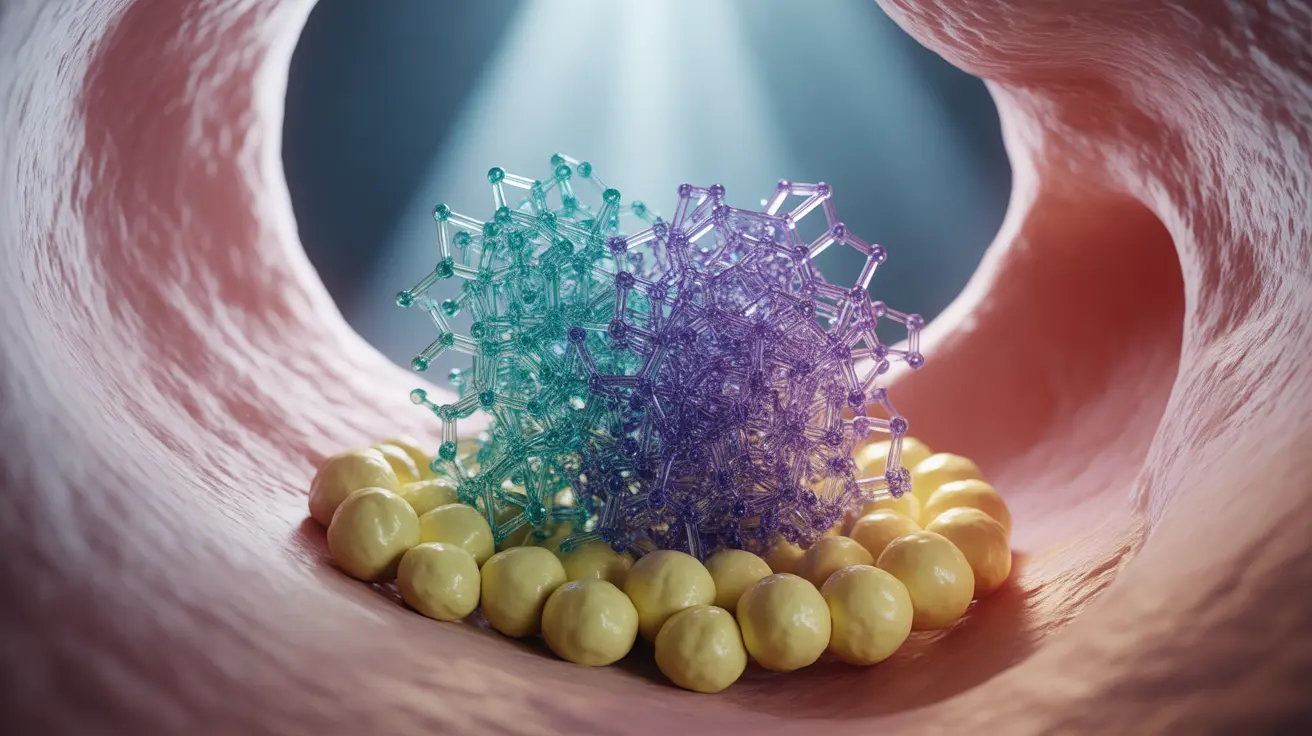Chitosan, a dietary supplement derived from the shells of crustaceans, has gained attention for its potential health benefits, particularly in weight management and cholesterol control. This natural fiber has become increasingly popular among those seeking alternative approaches to improve their health, but understanding its effects, safety profile, and proper usage is essential for making informed decisions.
In this comprehensive guide, we'll explore the science behind chitosan supplements, examine their proven benefits, and discuss important safety considerations that everyone should know before starting supplementation.
How Chitosan Works in the Body
Chitosan functions through a unique mechanism in the digestive system. When consumed, this fiber-like compound binds to dietary fats in the intestines, potentially reducing their absorption. This process creates a gel-like substance that:
- Entraps fat molecules before they can be absorbed
- Helps promote a feeling of fullness
- May influence the way the body processes cholesterol
The molecular structure of chitosan allows it to act as a "fat magnet," theoretically helping to reduce the caloric impact of fatty meals. However, the effectiveness of this mechanism can vary significantly among individuals.
Scientific Evidence for Weight Management
Research on chitosan's weight loss benefits has produced mixed results. While some studies suggest modest benefits, others show limited effectiveness. The most promising findings indicate that:
- Short-term weight loss may be enhanced when combined with a calorie-controlled diet
- Results are typically modest, averaging 1-2 pounds more than placebo groups
- Effects may be more pronounced in individuals consuming high-fat diets
It's important to note that chitosan is not a magic solution for weight loss and works best as part of a comprehensive health strategy.
Cholesterol Management Benefits
Studies examining chitosan's impact on cholesterol levels have shown more consistent results compared to weight loss research. Evidence suggests that regular chitosan supplementation may:
- Help reduce total cholesterol levels
- Support healthy LDL cholesterol management
- Contribute to improved HDL/LDL ratios
Safety Considerations and Precautions
Before starting chitosan supplementation, several important safety factors should be considered:
Potential Side Effects
Common side effects may include:
- Mild digestive discomfort
- Constipation or bloating
- Reduced absorption of fat-soluble vitamins
- Nausea in some individuals
Special Population Considerations
Certain groups should exercise particular caution or avoid chitosan entirely:
- People with shellfish allergies
- Pregnant or nursing women
- Individuals taking blood-thinning medications
- Those with specific vitamin deficiencies
Frequently Asked Questions
What are the proven benefits of taking chitosan for weight loss and cholesterol reduction? Chitosan has shown modest effectiveness for weight loss, typically resulting in 1-2 pounds more weight loss than placebo when combined with diet. For cholesterol reduction, studies indicate more consistent benefits, including potential improvements in total cholesterol and LDL levels.
Are there any common side effects or allergies to be aware of when using chitosan supplements? Common side effects include digestive issues like constipation, bloating, and nausea. People with shellfish allergies should avoid chitosan as it's derived from crustacean shells. Some users may experience reduced absorption of fat-soluble vitamins.
How does chitosan work to reduce fat absorption and improve cardiometabolic markers? Chitosan binds to dietary fats in the digestive system, forming a gel-like substance that reduces fat absorption. This mechanism may help improve cholesterol profiles and support weight management by reducing the caloric impact of dietary fats.
Is chitosan safe to use for people with shellfish allergies or those who are pregnant or breastfeeding? People with shellfish allergies should avoid chitosan due to its crustacean origin. Pregnant or breastfeeding women should not use chitosan as its safety hasn't been adequately studied in these populations.
Can chitosan interact with medications like blood thinners or affect vitamin absorption? Yes, chitosan can interact with blood-thinning medications and may reduce the absorption of fat-soluble vitamins (A, D, E, and K). Anyone taking medications should consult their healthcare provider before starting chitosan supplementation.




